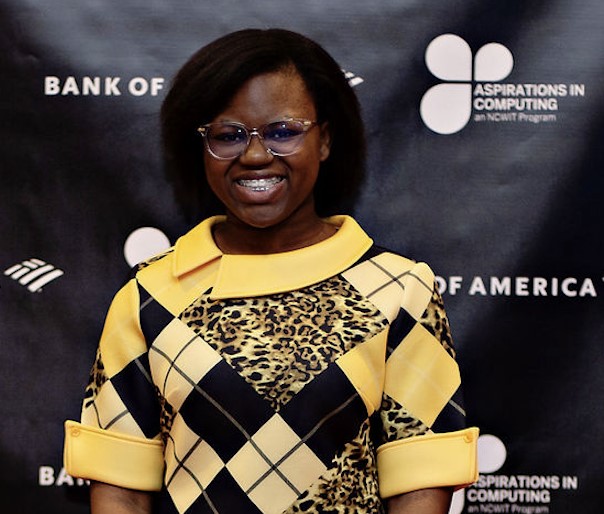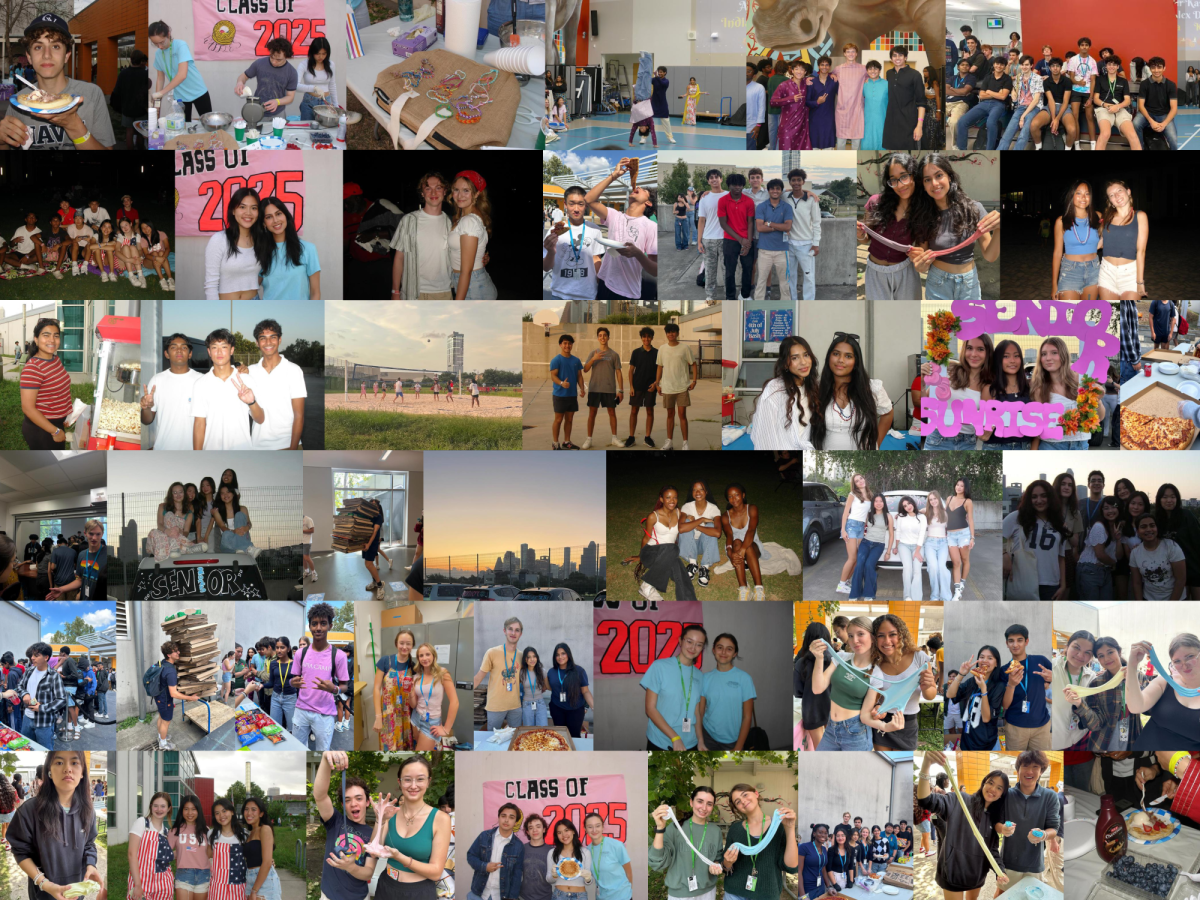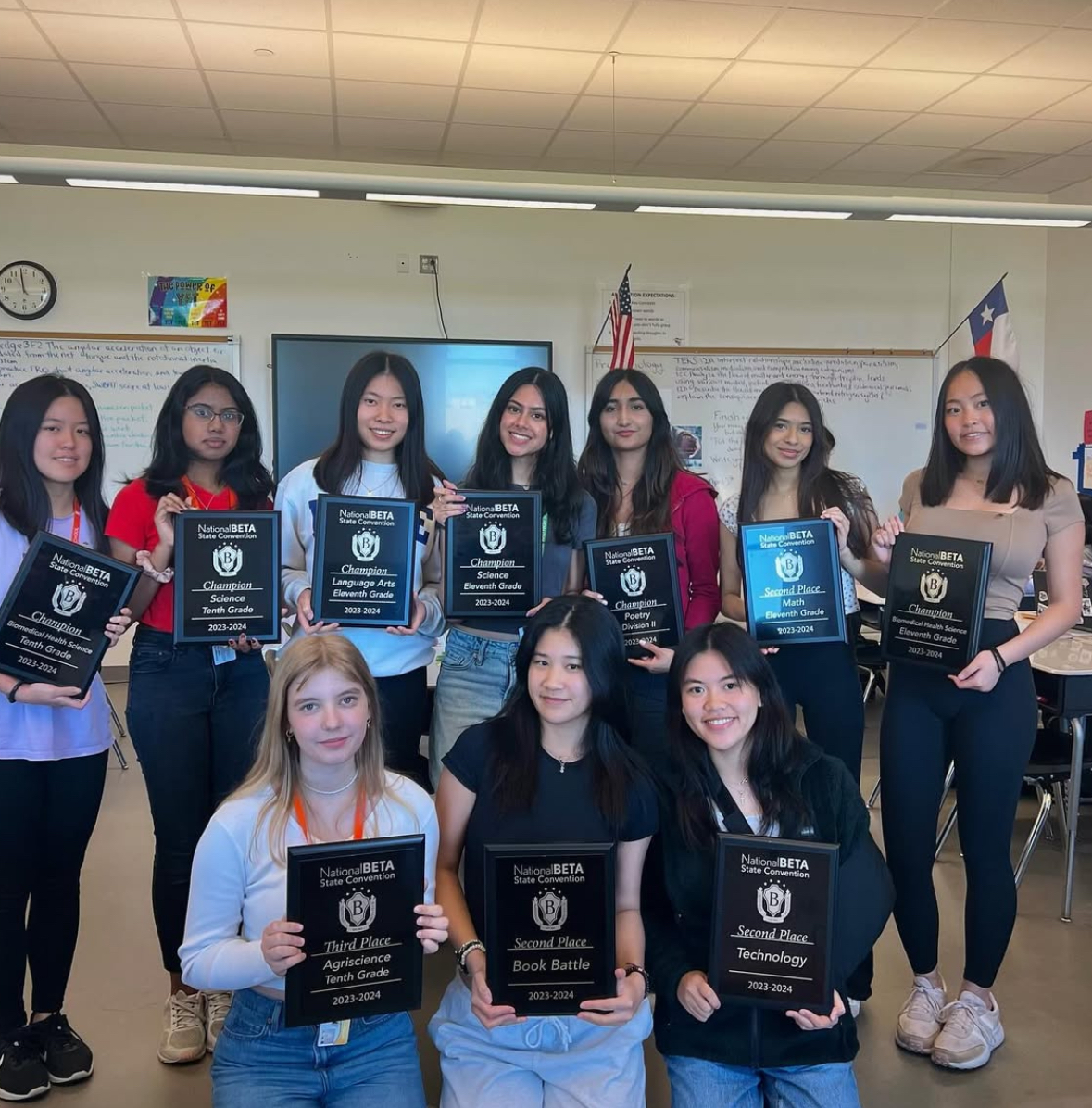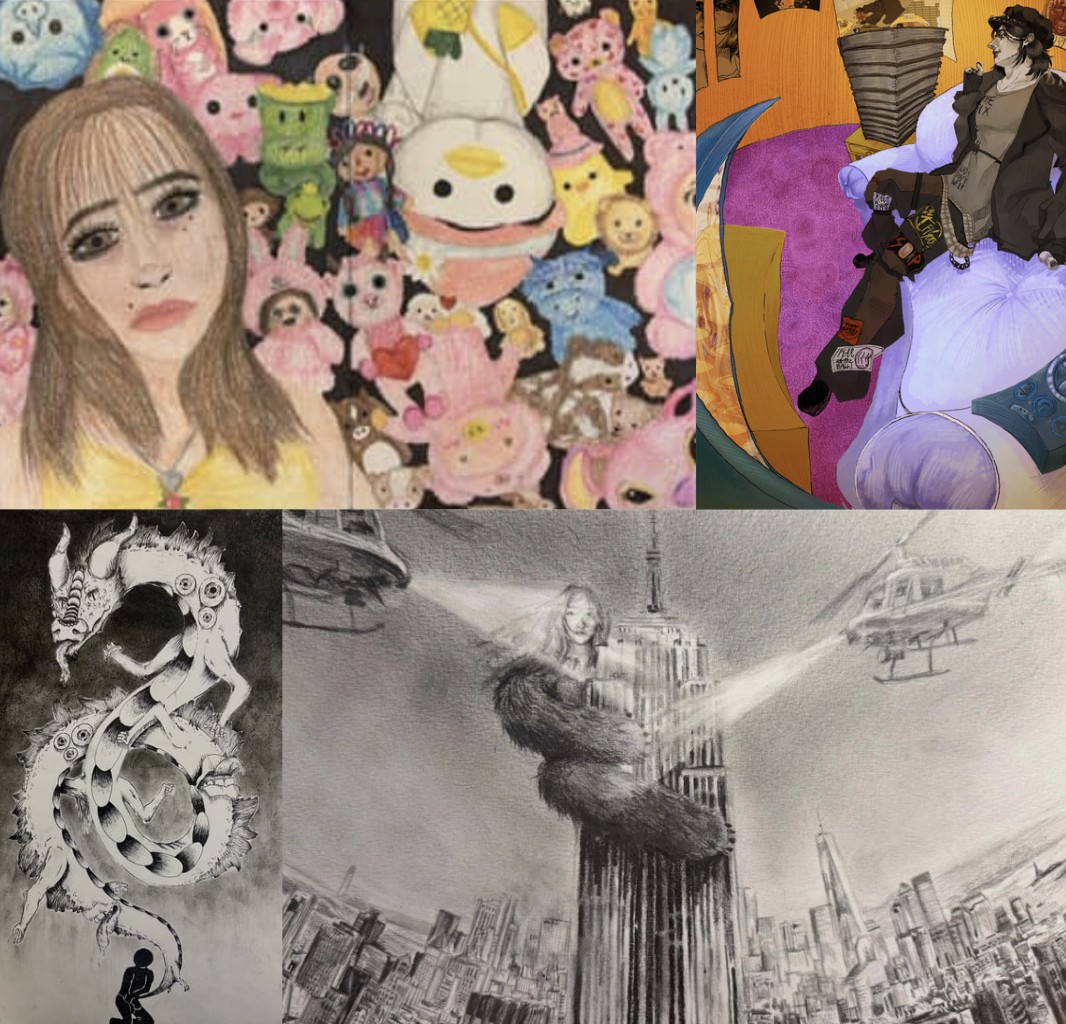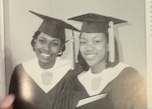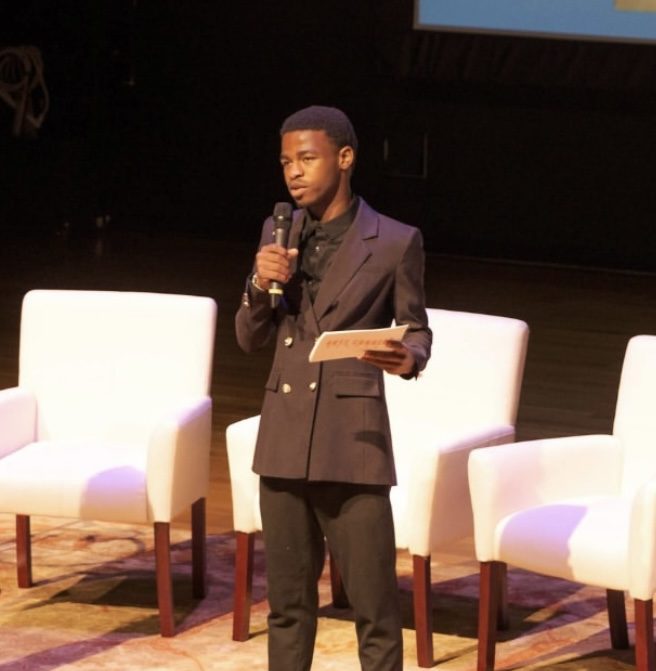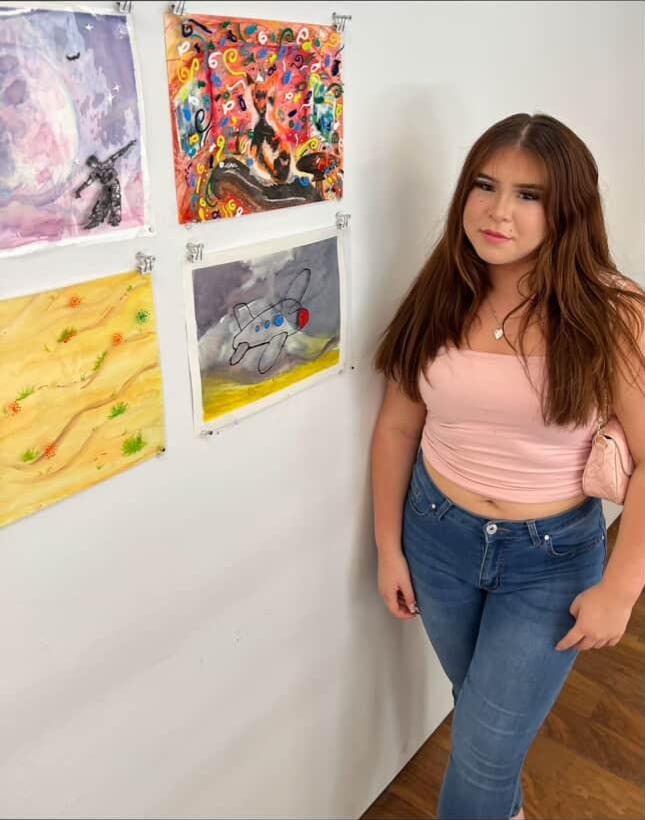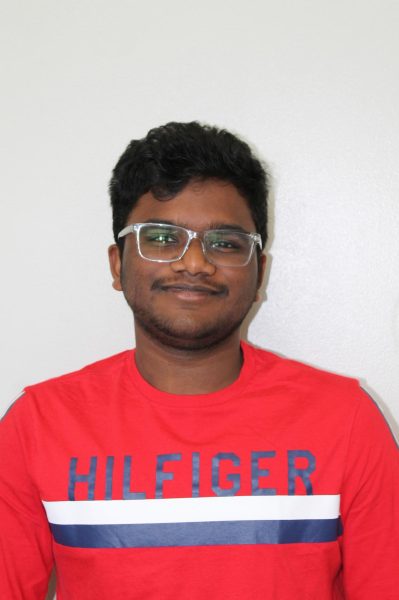3…2…1. Prep time is up! Senior Olutobi Adeyeri and her team proceed to make their way up to the stage, ready to face the daunting task of convincing investors to invest in their company, Type Along, which aims to solve the issue of childhood illiteracy.
“My idea for the company [Type Along] initially stemmed from my experience of attending a low-income elementary school, where a lot of students weren’t getting the necessary support to improve their literacy skills. I kept volunteering at the school even after I graduated, and I was able to gain an understanding of the problems faced by struggling readers,” Adeyeri said.
Type Along came to fruition in her freshman year, when she attended a virtual design thinking workshop. When she was tasked with designing a solution for a Sustainable Development Goal set by the UN, she knew exactly what issue she wanted to tackle.
“I chose education because of my background, and after weeks of ideating and working with teachers in the program, I was able to create the first version of Type-Along. It was the first of many versions that I would go on to create.”
But what exactly is Type Along? Type Along is a company that is in the process of creating a typing game which teaches kids how to read. Adeyeri states that the company aims to achieve its goal by focusing on phonics, the relationship between the sounds and letters of a language.
“For example, the word ‘cat’ is made up of phenomic sounds produced by its three letters. So what we’re doing in Type Along is creating an app where if you type a letter, it produces the sound made by that letter. As kids repeatedly type words such as ‘cat,’ they improve their literacy by repeatedly listening to the pronunciation of that word.“
Currently, Type Along is part of the Junior Achievement Company Program (JA), a non-profit which operates in high schools and offers tools and resources to student entrepreneurs such as Adeyeri. JA recommended Adeyeri to create a club at Carnegie in order to further the work of Type Along and thus, the Business and Entrepreneurship Club was born.
“[The club] tries to do a lot of project-based learning, and we have people on the team who are doing research, conducting interviews, and participating in various roles similar to a traditional company.”
Type Along has neared the end of the ideation phase of creating a business, meaning that the company’s general business model has been finalized. Currently, the company is in the process of creating a minimum viable product (MVP), essentially a beta version of the typing game that Adeyeri hopes to create.
“We’re currently evaluating the effectiveness of our product and working within our budget to create something that teachers and parents can look at and engage with and tell us, ‘okay, I could use this, right’?”
In addition to developing a MVP, Tobi and the Type-Along team are also simultaneously focused on generating investment by participating in pitch competitions where companies pitch their product and business model. The top companies win a set amount of money which is then invested into their business.
“In a pitch competition, student teams need to describe the problem they’re solving through their business. They need to pitch a plan to sell their product to the general market and ultimately convince the judges that their business is worth investing in,” Adeyeri said.
So far, Type Along has raised approximately $2,000 over the course of roughly 2 ½ years, participating in various pitch competitions such as the JA Trade Fair at Memorial City Mall, where the company solicited the public for donations and investments. The company also won $750 by getting 2nd place at the Houston Community College (HCC) Pitch Fest. Ultimately, Adeyeri has her eyes set on the Social Innovation Challenge, a national competition organized by Junior Achievement.
“JA organizes the National Student Leadership Conference (NSLC), in which the top 10 companies get the opportunity to travel to DC and pitch their product. Usually in order to advance to nationals you need to have profits, but JA has recently created the Social Innovation Challenge, a new competition in which companies focusing on a social issue have the opportunity to pitch their product. I’m really excited for us to be participating, and hopefully we make it to nationals,” said Adeyeri.
However, as Adeyeri notes, the success of Type Along wouldn’t have been possible without her team, which has supported her every step of the way.
“Our team has expanded from three students initially to about fifteen students currently, and having small teams of dedicated people is something that I’m really glad that we have. It took a while to get to a point where our team was relatively well functioning. But once you get there, it’s kind of easier to maintain that than when you’re kind of all over the place.”
And no easy task it was. As most team members started contributing to Type Along about a year after the company was started, it fell on Adeyeri’s shoulders as the CEO to educate the team on the company’s mission.
“So much of what I’ve been doing for the past two years is just educating the people in the company on the different things that they need to do, as most staff joined the company after the ideation stage.”
From guiding her team on delivering pitch decks to scheduling important tasks, Adeyeri has learnt a great deal about leadership and collaboration as CEO.
“Being a CEO really requires that you hold your own self accontable,” said Adeyeri. “You have to set deadlines and stick to it because if you’re off track, the whole company is off track. You also need to ensure that everybody is actually enjoying and invested in what they’re doing, especially as progress in a startup can be slow sometimes.”
Ultimately, Adeyeri believes that it all boils down to how effectively the skillsets of various team members can be leveraged.
“The first thing that I ask people when they join is what team do you want to be in and what kind of skills do you have, right? As CEO, you’re trying to figure out where students naturally fit the most. To that extent, we have various teams in fields such as curriculum development, programming, design, and research.”
Adeyeri hopes that Type Along continues to progress, and she believes her team is on to something.
“It [Type Along] is definitely different from a lot of the other companies that are working in the same industry in the sense that there is a student perspective. We’re trying to make reading fun by creating a typing game, and I think that’s something unique regarding our product.”
As for her own plans, Adeyeri hopes to pursue computer science and entrepreneurship in college, and she hopes to work in the edtech industry.
“I really do intend to continue pursuing entrepreneurship, and while I plan to grow Type Along, I have so many other ideas for problems within education that I’m interested in tackling. I’m only 18…so there’s so much that I still need to learn.”
Finally, Adeyeri hopes to inspire other student entrepreneurs to tackle social issues that they feel passionate about.
“If you’re interested in learning about entrepreneurship, definitely join the Business and Entrepreneurship Club. But other than that, focus on choosing a problem that is close to home and see how you can address it. Listen and learn from successful entrepreneurs, and be ready to fail and make mistakes. Try to connect with like-minded individuals and most importantly, don’t be afraid to ask for help.”


